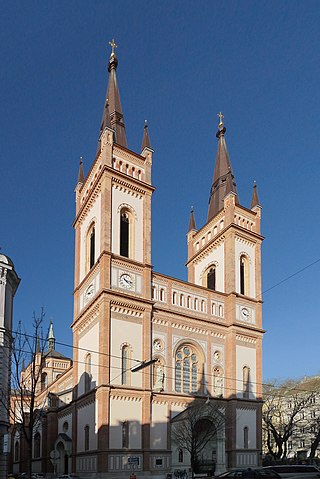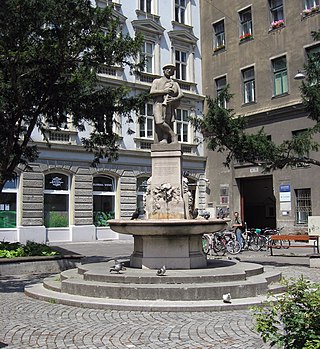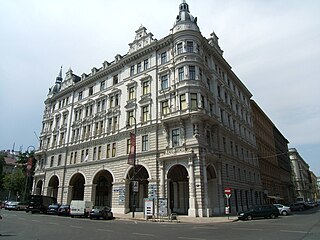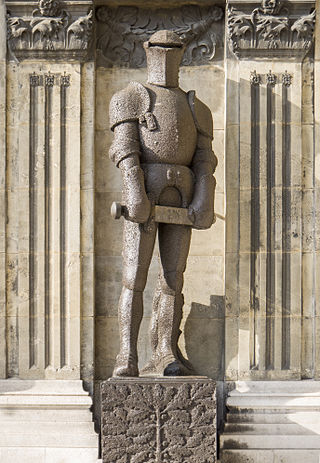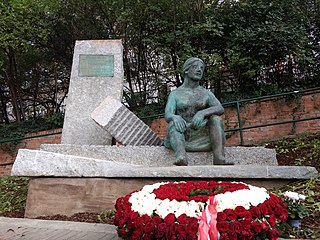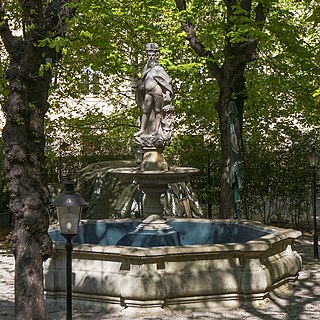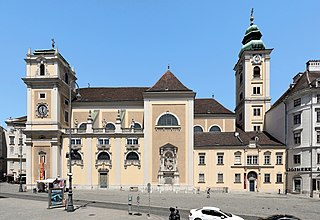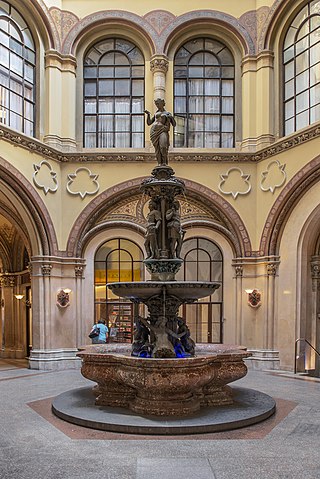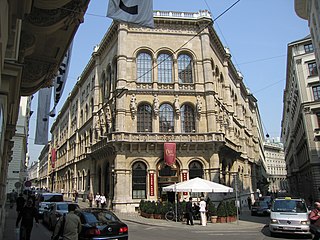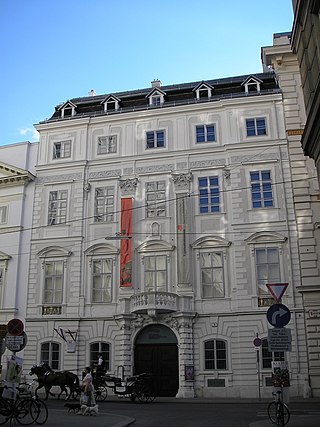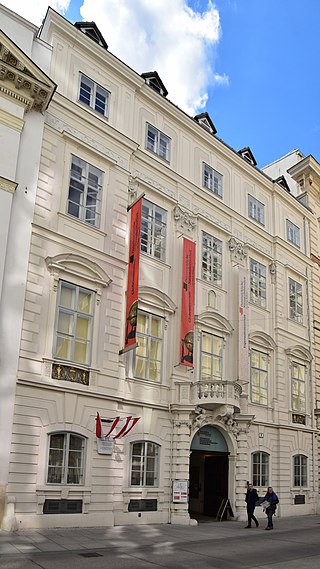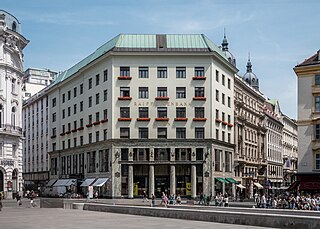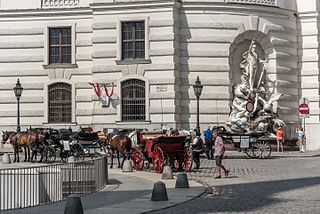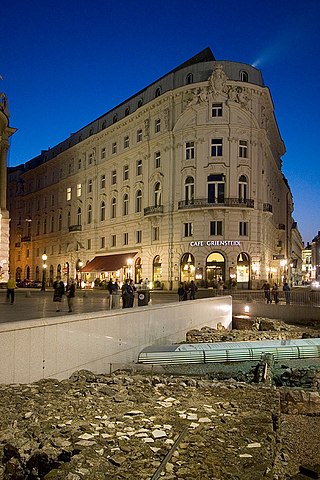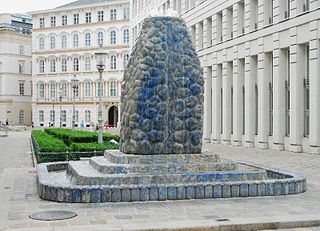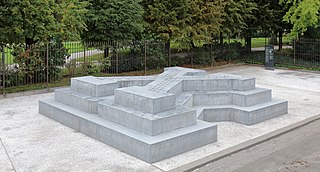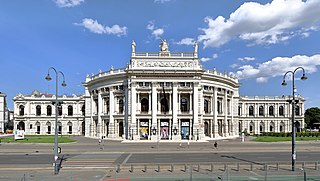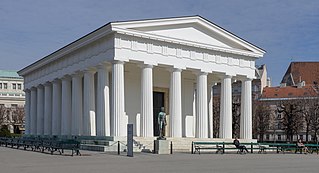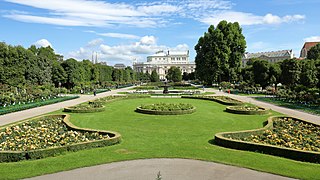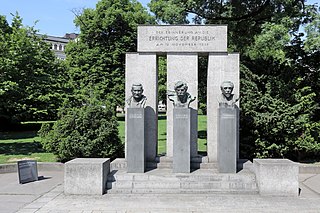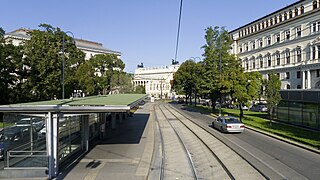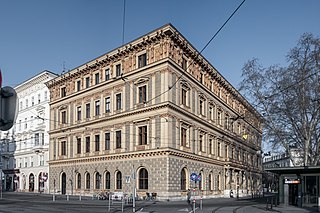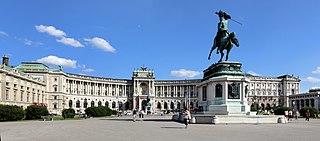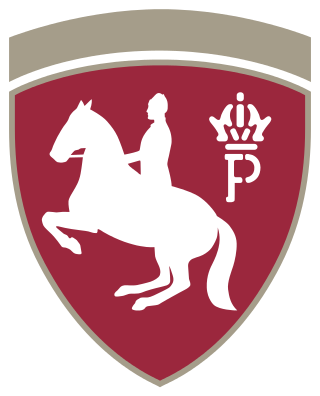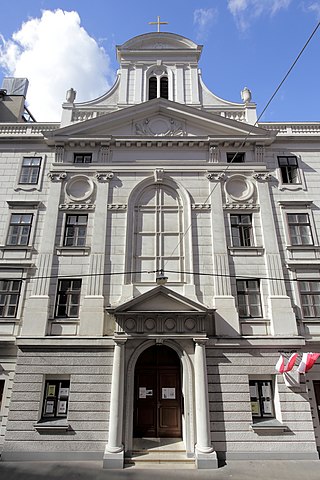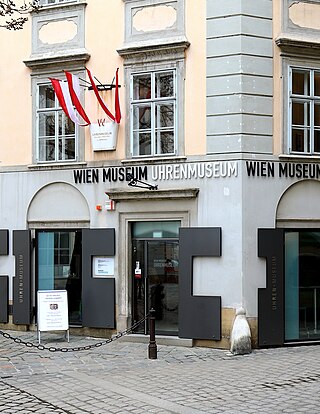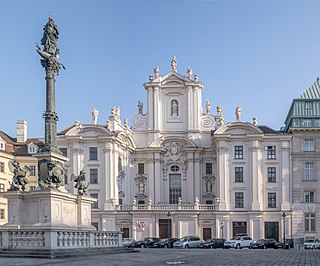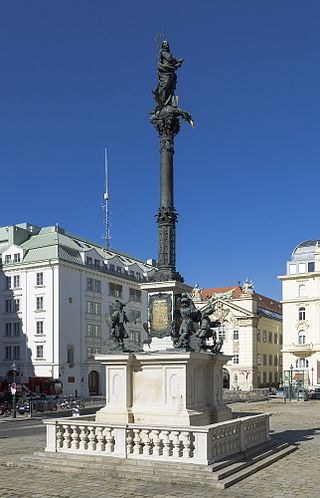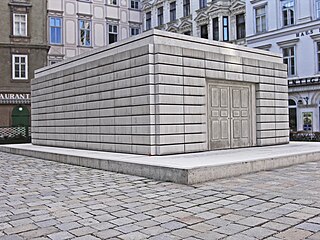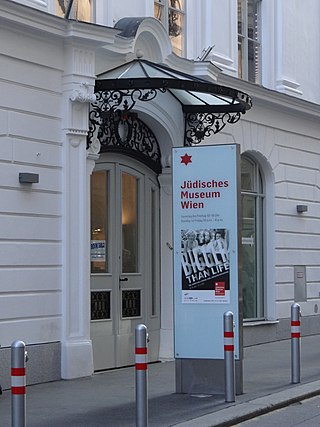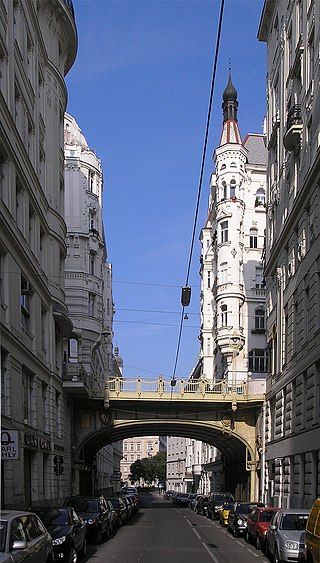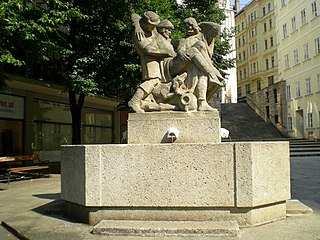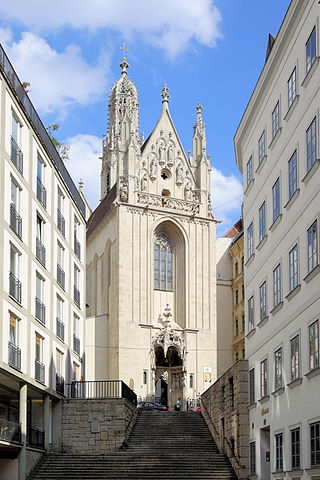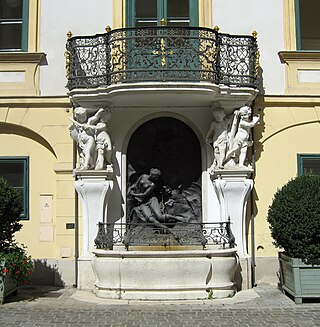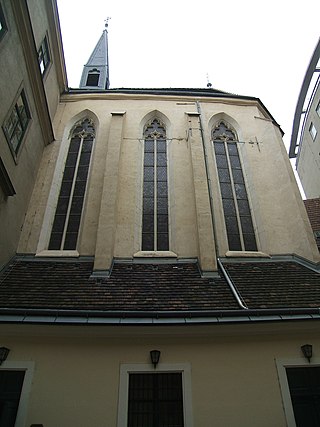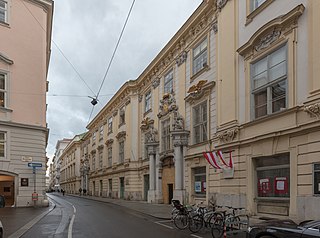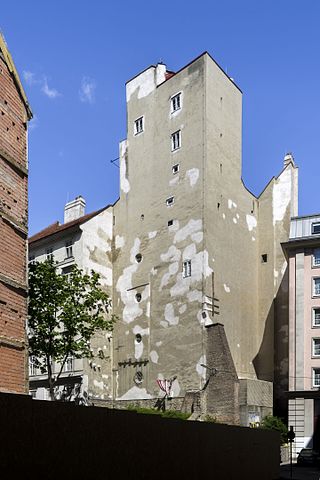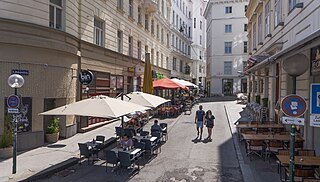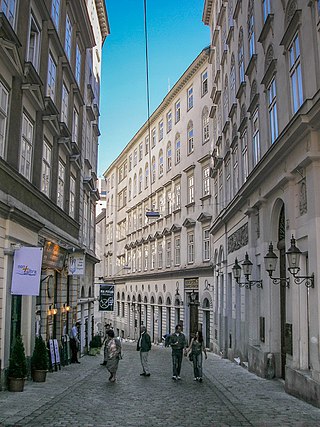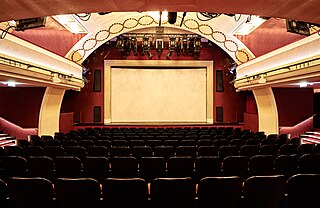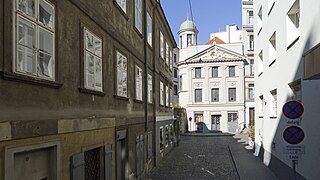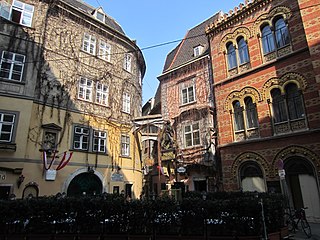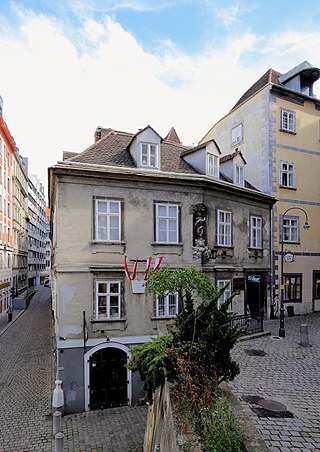Self-guided Sightseeing Tour #1 in Vienna, Austria
Legend
Guided Free Walking Tours
Book free guided walking tours in Vienna.
Guided Sightseeing Tours
Book guided sightseeing tours and activities in Vienna.
Tour Facts
8.8 km
195 m
Experience Vienna in Austria in a whole new way with our free self-guided sightseeing tour. This site not only offers you practical information and insider tips, but also a rich variety of activities and sights you shouldn't miss. Whether you love art and culture, want to explore historical sites or simply want to experience the vibrant atmosphere of a lively city - you'll find everything you need for your personal adventure here.
Activities in ViennaIndividual Sights in ViennaSight 1: Altlerchenfelder Kirche
The Altlerchenfelder Pfarrkirche zu den Sieben Zufluchten is a Roman Catholic parish church in the Altlerchenfeld district of the 7th district of Vienna, Neubau, Lerchenfelder Straße 111. It is interesting from an art-historical point of view in that it forms a kind of transitional work between classicism and historicism in architecture. In particular, the church building in its combination of architecture and painting is considered an example of a total work of art in the sense of the Romantic conception of art and one of the main works of historicism in Vienna's architecture. The patronage is the Seven Refuges.
Sight 2: Augustinbrunnen
The Augustinbrunnen is a fountain on Augustinplatz in Vienna's 7th district of Neubau.
Sight 3: Theater in der Josefstadt
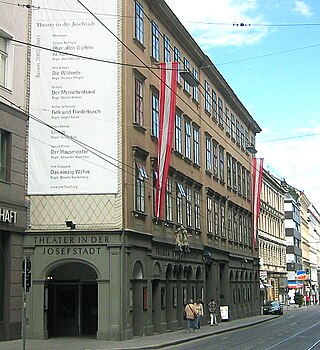
The Theater in der Josefstadt is a theater in Vienna in the eighth district of Josefstadt. It was founded in 1788 and is the oldest still performing theater in Vienna. It is often referred to colloquially as simply Die Josefstadt.
Sight 4: Kabarett Niedermair
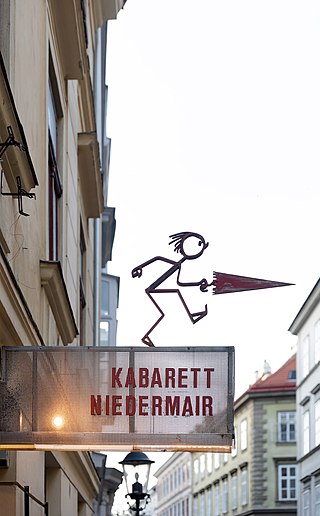
The Kabarett Niedermair is a cabaret theatre in Vienna's 8th district of Josefstadt, which was founded in 1983 by Nadja Niedermair.
Sight 5: Wiener Planungswerkstatt
The Vienna Planning Workshop (WPW) is an exhibition and information centre of the Vienna City Administration, which focuses on architecture and urbanism.
Sight 6: Wehrmann in Eisen
Wehrmann in the iron, also Wehrmann in iron, called an Eiserner Wehrmann, is a sculpture in Vienna. It was the first of the wooden objects that were set up for war financing in the First World War and nailed against a donation. Today it stands at the Keke Felderstraße - Bendorferstraße, opposite the town hall on Ringstrasse.
Sight 7: Österreichs Trümmerfrauen
The Trümmerfrauen-Denkmal is a monument on a private property in Vienna, which is intended to commemorate the use of Trümmerfrauen in the reconstruction of the city, which was destroyed by Allied bombing raids, during and after the Second World War.
Sight 8: Heinrich-Jasomirgott-Brunnen
The Heinrich-Jasomirgott-Brunnen or Heinrichsbrunnen is a fountain in the Schottenstift in the 1st district of Vienna. As part of the overall complex of the Schottenstift, it is a listed building (list entry).
Sight 9: Schottenkirche
The Schottenkirche is a parish church in Vienna attached to the Schottenstift, founded by Irish Benedictine monks in the 12th century. In 1418, the Duke Albert V of Austria transferred it to the German-speaking Benedictine monks from the Melk Abbey during the Melker Reform initiated after the Council of Constance. The church was elevated to the rank of Basilica Minor in 1958.
Sight 10: Donaunixenbrunnen
The Danube Mermaid Fountain is a fountain in Vienna's 1st district, Innere Stadt.
Sight 11: Café Central
Café Central is a traditional Viennese café located at Herrengasse 14 in the Innere Stadt first district of Vienna, Austria. The café occupies the ground floor of the former Bank and Stockmarket Building, today called the Palais Ferstel after its architect Heinrich von Ferstel.
Sight 12: Globenmuseum
The Globe Museum is a museum in the Palais Mollard, Vienna, Austria, part of the Austrian National Library. It was opened in 1956, and is the only public museum in the world devoted to globes, being three-dimensional models of Earth or other celestial bodies, or spherical representations of the celestial sphere.
Sight 13: Palais Mollard-Clary
Palais Mollard-Clary is a Baroque palace in Vienna, Austria. It is located in the first district Innere Stadt, at Herrengasse 9.
Sight 14: Looshaus
Join Free Tour*The Looshaus is a commercial and residential building at Michaelerplatz 3, between Herrengasse and Kohlmarkt, in Vienna. Designed by Adolf Loos and completed in 1912, it is considered a major building of Viennese Modernism.
Sight 15: Die Macht zu Lande
Die Macht zu Lande is a monumental wall fountain on the façade of the Michaelertrakt of the Hofburg on Michaelerplatz in Vienna's 1st district, Innere Stadt. The fountain was designed by the sculptor Edmund von Hellmer, unveiled in 1897 and is a listed building. On the opposite side of Michaelerplatz is the fountain Macht zur See.
Sight 16: Palais Herberstein
The so-called Palais Herberstein is a large Wilhelminian apartment building in Vienna's 1st district, Innere Stadt, on the corner of Michaelerplatz and Herrengasse.
Sight 17: Wasserwellen-Lebens-Brunnen
The Water Wave Life Fountain, also known as the Lapis Lazuli Lazurite Wave Water Sculpture, Lapis Lazuli Fountain, Kreisky Fountain or Blue Sign, is a fountain in Vienna's 1st district, Innere Stadt.
Sight 18: Deserter monument
The Memorial for the Victims of Nazi Military Justice is located at the Ballhausplatz in the centre of Vienna, opposite the President's office and the Austrian Chancellory. The monument was created by German conceptual artist Olaf Nicolai. The inscription atop the three-step sculpture features the poem by Scottish poet Ian Hamilton Finlay consisting of just two words: all alone.
Wikipedia: Memorial for the Victims of Nazi Military Justice (EN), Website
Sight 19: Austrian National Theatre
The Burgtheater (German: [ˈbʊʁk.teˌaːtɐ]; literally: "Castle Theater" but alternatively translated as " Court Theater", originally known as K.K. Theater an der Burg, then until 1918 as the K.K. Hofburgtheater, is the national theater of Austria in Vienna. It is the most important German-language theater and one of the most important theatres in the world. The Burgtheater was opened in 1741 and has become known as die Burg by the Viennese population; its theater company has created a traditional style and speech typical of Burgtheater performances.
Sight 20: Theseus Temple
The Theseus Temple is a classicist building in the Volksgarten in Vienna's 1st district, Innere Stadt.
Sight 21: People's Garden
The Volksgarten is a public park in the Innere Stadt first district of Vienna, Austria. The garden, which is part of the Hofburg Palace, was laid out by Ludwig Remy in 1821. The park was built over the city fortifications that were destroyed by Napoleon in 1809. The Volksgarten was opened to the public in 1823.
Sight 22: The Republic Monument
The Monument to the Republic, also known as the Republic Monument, in Vienna commemorates the proclamation of the Republic of German-Austria on 12 November 1918. It is located on Dr.-Karl-Renner-Ring between the Parliament Building and Palais Epstein in front of Grete-Rehor-Park.
Sight 23: Grete-Rehor-Park
Schmerlingplatz is located in Vienna's 1st district, the Innere Stadt. It was named in 1893 after the politician Anton von Schmerling.
Sight 24: Palais Epstein
Palais Epstein is a Ringstraßenpalais in Vienna, Austria. It was built for the industrialist and banker Gustav Ritter von Epstein. The architect was Theophil Freiherr von Hansen, who also designed the adjacent Austrian Parliament Building. Unlike traditional Baroque noble palaces in Vienna, Palais Epstein was built in the late 19th century and is therefore considered a Ringstraßenpalais. It is up to five storeys high and built in the neo-Renaissance style typical of its time.
Sight 25: Schweizertor
The Hofburg is the former principal imperial palace of the Habsburg dynasty in Austria. Located in the centre of Vienna, it was built in the 13th century and expanded several times afterwards. It also served as the imperial winter residence, as Schönbrunn Palace was the summer residence. Since 1946, it has been the official residence and workplace of the president of Austria.
Sight 26: Spanish Riding School
Join Free Tour*The Spanish Riding School is an Austrian institution based in Vienna, dedicated to the preservation of classical dressage and the training of Lipizzaner horses, whose performances in the Hofburg are also a tourist attraction. The leading horses and riders of the school also periodically tour and perform worldwide. It is one of the "Big Four", the most prestigious classical riding academies in the world, alongside the Cadre Noir, the Portuguese School of Equestrian Art, and the Royal Andalusian School.
Sight 27: Lutherische Stadtkirche
The Lutheran City Church is a Lutheran church building in Innere Stadt, the first district of Vienna.
Sight 28: Clock Museum
The Clock Museum is a museum of the City of Vienna. It is located in one of the oldest houses in Vienna, the Palais Obizzi in Vienna's 1st district, Innere Stadt.
Sight 29: Kirche Am Hof
The Kirche am Hof is a church built between 1386 and 1403 in Vienna. However, the main façade, which dominates the square, was not built until 1662. It is located on the east side of the Am Hof square in Vienna's 1st district, Innere Stadt.
Sight 30: Mariensäule
The Marian Column Am Hof in Vienna is a statue dedicated to Mary on a column. It is a bronze copy of the stone column donated by Emperor Ferdinand III in gratitude for saving the city of Vienna from a Swedish army in 1645 towards the end of the Thirty Years' War and erected in 1646 by the master stonemason and sculptor Johann Jacob Pock, which was translocated to Wernstein am Inn in 1667 at the instigation of Emperor Leopold I and Count Georg Ludwig von Sinzendorf. The Vienna Column was commissioned in 1664 from the imperial stucco foundry Balthasar Herold and inaugurated on 8 December 1667 at the court.
Sight 31: Holocaust-Mahnmal
The Judenplatz Holocaust Memorial also known as the Nameless Library stands in Judenplatz in the first district of Vienna. It is the central memorial for the Austrian victims of the Holocaust and was designed by British artist Rachel Whiteread.
Sight 32: Jüdisches Museum Judenplatz
The Jüdisches Museum Wien, trading as Jüdisches Museum der Stadt Wien GmbH or the Jewish Museum Vienna, is a museum of Jewish history, life and religion in Austria. The museum is present on two locations, in the Palais Eskeles in the Dorotheergasse and in the Judenplatz, and has distinguished itself by a very active programme of exhibitions and outreach events highlighting the past and present of Jewish culture in Austria. The current director is Barbara Staudinger and the chief curator is Astrid Peterle.
Sight 33: Hohe Brücke
The Hohe Brücke is a bridge across the Tiefer Graben in Innere Stadt, Vienna, Austria. It links the two parts of Wipplingerstraße, which used to be separated by a brook.
Sight 34: Hannakenbrunnen
The Hannakenbrunnen is a listed fountain in the 1st district of Vienna, Innere Stadt Am Gestade near the church of Maria am Gestade.
Sight 35: Kirche Maria am Gestade
Maria am Gestade is a Gothic church in Vienna, Austria. One of the oldest churches in the city—along with St. Peter's Church and St. Rupert's Church—it is one of the few surviving examples of Gothic architecture in Vienna. Located in the Innere Stadt at Salvatorgasse 12, near the Donaukanal, the church was traditionally used by sailors on the Danube river. The name reflects the former location on the Fluvial terrace of an arm of the Danube river, prior to its regulation.Due to the stairs surrounding the church it got the popular name Maria Stiegen.
Sight 36: Andromedabrunnen
The Andromeda Fountain is a fountain in Vienna's 1st district, Innere Stadt.
Sight 37: St. Salvator
The Salvatorkirche in the complex of the Old Town Hall in Vienna was built in the 14th century. In 1871 it was handed over to the Old Catholic Church and has since been the episcopal church of the Old Catholic Church of Austria. Until then, it served as the house chapel of the town hall.
Sight 38: Altes Rathaus
The Alte Rathaus is a building in central Vienna, located at Wipplingerstraße 8, 1st District.
Sight 39: Roman Museum
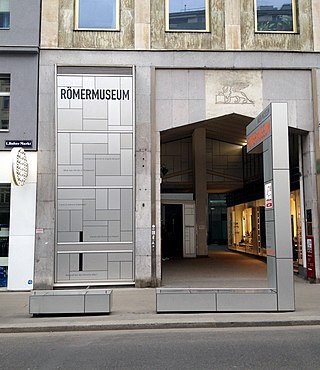
The Roman Museum Vienna is a branch of the Wien Museum. It was opened in May 2008 and is located diagonally opposite the Anker Clock on the Hoher Markt in Vienna. The museum specializes in the history of Vienna in Roman times.
Sight 40: Kornhäuselturm
The Kornhäuselturm is a building built between 1825 and 1827 according to designs by Joseph Kornhäusel in Vienna's 1st district, Innere Stadt. At the time of its construction, it was the tallest secular tower in Vienna. With a height of over 35 meters, it is the oldest high-rise in Vienna according to the current Viennese building regulations.
Sight 41: Bermudadreieck
The Bermuda Triangle is a local and trendy district in Vienna's 1st district, Innere Stadt.
Sight 42: Stadttempel
The Stadttempel, also called the Seitenstettengasse Temple, is an Orthodox Jewish synagogue, located at Seitenstettengasse 4, in the Innere Stadt 1st district of Vienna, Austria. Completed in 1826, it is the main synagogue in Vienna. The congregation worships in the Ashkenazi rite.
Sight 43: Kammerspiele
The Kammerspiele der Josefstadt is a theatre in the 1st district of Vienna, Innere Stadt, in the Steyrerhof, a side street of Rotenturmstraße. Today, the Kammerspiele is run as the "branch stage" of the Theater in der Josefstadt and is dedicated to the cultivated boulevard play with a focus on classic entertainment literature. They always retained their attraction from popular actors, often known from film and television, such as Senta Berger, Johannes Heesters, Georg Kreisler, Hans Moser, Fritz Muliar, Susi Nicoletti, Georg Thomalla, Helmut Qualtinger and Otto Schenk.
Sight 44: Georgskirche
St. George's Church, also known as the Greek Church of St. George, is an Orthodox church in Vienna's 1st district, Innere Stadt, on the Hafnersteig in the former "Greek Quarter".
Sight 45: Griechenbeisl
Griechenbeisl is one of the oldest restaurants in Vienna, Austria. Established in 1447 and having operated under several different names, the restaurant is located on Fleischmarkt 11 near the Holy Trinity Greek Orthodox Church.
Sight 46: Zum gelben Adler
Zum gelben Adler is a former inn on the corner of Hafnersteig and Griechengasse in Vienna's Innere Stadt. The building, which is now used as a residential building, is a listed building.
Share
Disclaimer Please be aware of your surroundings and do not enter private property. We are not liable for any damages that occur during the tours.
GPX-Download For navigation apps and GPS devices you can download the tour as a GPX file.
